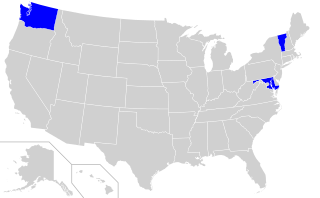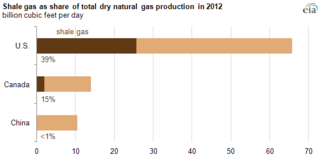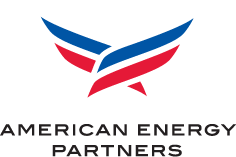Related Research Articles
Earthjustice is a nonprofit public interest organization based in the United States dedicated to litigating environmental issues. Headquartered in San Francisco, it has 14 regional offices across the United States, an international program, a communications team, and a policy & legislation team in Washington, DC.

The petroleum industry, also known as the oil industry or the oil patch, includes the global processes of exploration, extraction, refining, transportation, and marketing of petroleum products. The largest volume products of the industry are fuel oil and gasoline (petrol). Petroleum is also the raw material for many chemical products, including pharmaceuticals, solvents, fertilizers, pesticides, synthetic fragrances, and plastics. The industry is usually divided into three major components: upstream, midstream, and downstream. Upstream regards exploration and extraction of crude oil, midstream encompasses transportation and storage of crude, and downstream concerns refining crude oil into various end products.
A gag order is an order, typically a legal order by a court or government, restricting information or comment from being made public or passed onto any unauthorized third party. The phrase may sometimes be used of a private order by an employer or other institution.
Chesapeake Energy Corporation is an American energy company engaged in hydrocarbon exploration. It is headquartered in Oklahoma City. The company is named after the founder's love for the Chesapeake Bay region. The company is ranked 513th on the Fortune 500.

Anadarko Petroleum Corporation was a company engaged in hydrocarbon exploration. It was organized in Delaware and headquartered in two skyscrapers in The Woodlands, Texas: the Allison Tower and the Hackett Tower, both named after former CEOs of the company. In 2019, the company was acquired by Occidental Petroleum.

Hydraulic fracturing in the United States began in 1949. According to the Department of Energy (DOE), by 2013 at least two million oil and gas wells in the US had been hydraulically fractured, and that of new wells being drilled, up to 95% are hydraulically fractured. The output from these wells makes up 43% of the oil production and 67% of the natural gas production in the United States. Environmental safety and health concerns about hydraulic fracturing emerged in the 1980s, and are still being debated at the state and federal levels.

The United States Department of Justice Environment and Natural Resources Division (ENRD) is one of seven litigating components of the U.S. Department of Justice. ENRD's mandate is to enforce civil and criminal environmental laws and programs protecting the health and environment of the United States, and to defend suits challenging those laws and programs.

Shale gas is natural gas that is found trapped within shale formations. Shale gas has become an increasingly important source of natural gas in the United States since the start of this century, and interest has spread to potential gas shales in the rest of the world. In 2000 shale gas provided only 1% of U.S. natural gas production; by 2010 it was over 20% and the U.S. government's Energy Information Administration predicts that by 2035, 46% of the United States' natural gas supply will come from shale gas.

Hydraulic fracturing, also called fracking, hydrofracking, and hydrofracturing, is a well stimulation technique involving the fracturing of bedrock formations by a pressurized liquid. The process involves the high-pressure injection of "fracking fluid" into a wellbore to create cracks in the deep-rock formations through which natural gas, petroleum, and brine will flow more freely. When the hydraulic pressure is removed from the well, small grains of hydraulic fracturing proppants hold the fractures open.

Range Resources Corporation is a natural gas exploration and production company headquartered in Fort Worth, Texas. It operates in the Marcellus Formation, where it is one of the largest land owners.

Hydraulic fracturing in the United Kingdom started in the late 1970s with fracturing of the conventional oil and gas fields near the North Sea. It was used in about 200 British onshore oil and gas wells from the early 1980s. The technique attracted attention after licences use were awarded for onshore shale gas exploration in 2008. The topic received considerable public debate on environmental grounds, with a 2019 high court ruling ultimately banning the process. The two remaining high-volume fracturing wells were supposed to be plugged and decommissioned in 2022.

Hydraulic fracturing has become a contentious environmental and health issue with Tunisia and France banning the practice and a de facto moratorium in place in Quebec (Canada), and some of the states of the US.

Environmental impact of hydraulic fracturing in the United States has been an issue of public concern, and includes the contamination of ground and surface water, methane emissions, air pollution, migration of gases and hydraulic fracturing chemicals and radionuclides to the surface, the potential mishandling of solid waste, drill cuttings, increased seismicity and associated effects on human and ecosystem health. Research has determined that human health is affected. A number of instances with groundwater contamination have been documented due to well casing failures and illegal disposal practices, including confirmation of chemical, physical, and psychosocial hazards such as pregnancy and birth outcomes, migraine headaches, chronic rhinosinusitis, severe fatigue, asthma exacerbations, and psychological stress. While opponents of water safety regulation claim hydraulic fracturing has never caused any drinking water contamination, adherence to regulation and safety procedures is required to avoid further negative impacts.

The environmental impact of hydraulic fracturing is related to land use and water consumption, air emissions, including methane emissions, brine and fracturing fluid leakage, water contamination, noise pollution, and health. Water and air pollution are the biggest risks to human health from hydraulic fracturing. Research has determined that hydraulic fracturing negatively affects human health and drives climate change.

There are many exemptions for hydraulic fracturing under United States federal law: the oil and gas industries are exempt or excluded from certain sections of a number of the major federal environmental laws. These laws range from protecting clean water and air, to preventing the release of toxic substances and chemicals into the environment: the Clean Air Act, Clean Water Act, Safe Drinking Water Act, National Environmental Policy Act, Resource Conservation and Recovery Act, Emergency Planning and Community Right-to-Know Act, and the Comprehensive Environmental Response, Compensation, and Liability Act, commonly known as Superfund.

The Marcellus natural gas trend is a large and prolific area of shale gas extraction from the Marcellus Shale or Marcellus Formation of Devonian age in the eastern United States. The shale play encompasses 104,000 square miles and stretches across Pennsylvania and West Virginia, and into eastern Ohio and western New York. In 2012, it was the largest source of natural gas in the United States, and production was still growing rapidly in 2013. The natural gas is trapped in low-permeability shale, and requires the well completion method of hydraulic fracturing to allow the gas to flow to the well bore. The surge in drilling activity in the Marcellus Shale since 2008 has generated both economic benefits and considerable controversy.
Hydraulic fracturing is the propagation of fractures in a rock layer by pressurized fluid. Induced hydraulic fracturing or hydrofracking, commonly known as fracking, is a technique used to release petroleum, natural gas, or other substances for extraction. Radionuclides are associated with hydraulic fracturing in two main ways. Injection of man-made radioactive tracers, along with the other substances in hydraulic-fracturing fluid, is often used to determine the injection profile and location of fractures created by hydraulic fracturing. In addition, hydraulic fracturing releases naturally occurring heavy metals and radioactive materials from shale deposits, and these substances return to the surface with flowback, also referred to as wastewater.

American Energy Partners, LP, also known as AELP, was an American natural gas and oil company founded in April 2013 by Aubrey K. McClendon. The company managed affiliates responsible for natural shale gas and oil production and exploration in the United States, as well as management of assets, minerals, royalties and non-operated properties. It was headquartered in Oklahoma City, Oklahoma, and employed over 450 people as of August 2015. AELP announced on May 18th, 2016, two months after McClendon's death, that it would end operations and close by the end of summer 2016.

Environmental issues in Appalachia, a cultural region in the Eastern United States, include long term and ongoing environmental impact from human activity, and specific incidents of environmental harm such as environmental disasters related to mining. A mountainous area with significant coal deposits, many environmental issues in the region are related to coal and gas extraction. Some extraction practices, particularly surface mining, have met significant resistance locally and at times have received international attention.
AquaSalina is a salt de-icer made from produced water at Duck Creek Energy's vertical oil and gas wells. It is then filtered in Cleveland, Ohio and Mogadore, Ohio. The Ohio Department of Transportation approved AquaSalina in 2004, and it has been sold at Lowe's and elsewhere.